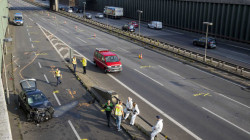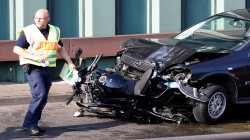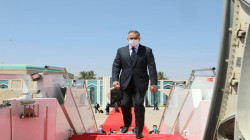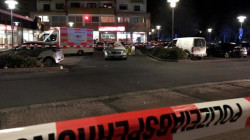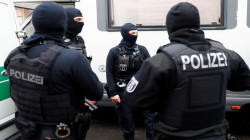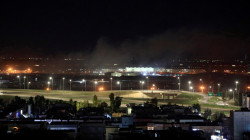Iraqi Jews and Muslims cross boundaries in Berlin
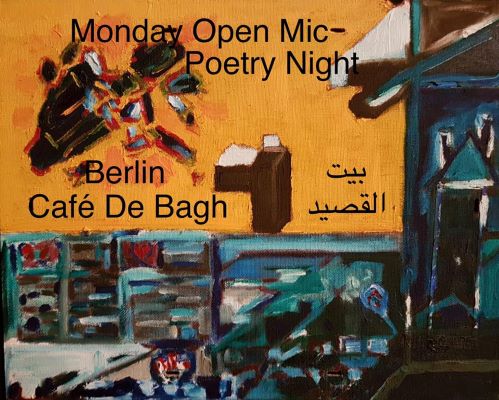
Shafaq News/ At Café de Bagh, Jews and Muslims share arak and sabich far away from the politics of Iraq and Israel.
Under a recent law, Iraqi citizens are banned from having anything to do with Israel or Israelis. But here in Berlin, this Iraqi law feels like a parody.
At Café De Bagh, Israeli Jews from Iraq and Iraqi Muslims dance together to the music of Dudu Tasa, grandson of classical Iraqi composers Saleh and Daoud Al-Kuwaity.
They drink arak, Arab aniseed liqueur, and eat sabich, the Israeli sandwich based on Iraqi breakfast ingredients, which has an almost cult following in Berlin. Activist and writer Yossi Lampal compiled an anthology entitled The Influence of Sabich on German Culture, which was launched at Café De Bagh.
The cafe also hosts open mic and cultural events, like the multi-lingual collective Poetic Hafla, which brings together Israeli, Arab and other international performers.
Café De Bagh is owned by Baghdadi Dury De Bagh, an Iraqi Muslim turned Berliner. When I arrive, he is sitting smiling in the doorway of his bar in a brown hat, dark shirt and colourful vest. He is on the phone with an Iraqi poet who had just returned from Berlin to Basra.
He introduces me in Arabic, describing me as “our brother, one of the beloved Jews of Baghdad”.
When I explain that, though my mother was born in Baghdad, I am an Israeli so have never been able to travel to the graves of our ancestors, the Basra poet responds, “Inshallah, one day you can travel. We also miss the Jews of Basra.”
Ninety-five per cent of Iraqi Jews left the country in 1950-51 for Israel. Many people here have memories of the Jews in Baghdad. Opposite the coffee window, facing the street, sits a retired Iraqi politician from the communist party, with a dark blazer and white hair. He has warm memories of his Jewish neighbours.
“I remember on your holiday that flour should not be eaten, how my family prepared sweet foods for them to celebrate the end of the holiday,” he says, referring to the tradition of the Mimouna, which Iraqi Jews celebrate immediately after Passover.
I tell him about the Muslim family in Baghdad who saved my grandmother from Iraqi rioters during the 1941 Farhud, and how my grandmother talked all her life about the house she left without a chance to come back or even sell it.
He moves a bit closer. “You know my father refused to buy one of the houses that belonged to the Jews, although it was offered to him with a cheap price. He believed that he hadn’t the right to do it.”
Café de Bagh is a long way from the tension between Iraq and Israel that exist at a political level.
Here Iraqi heritage is shared by Jews and Arabs. Here, too, Jews and Arabs sometimes have a common enemy. The café is in Neukölln, not far from Sonnenallee, the street which is the centre of Arab culture and food in Berlin.
De Bagh previously had a bar in the Alt-Tegel neighbourhood. Why did he move? “The Neo-Nazis did a demo and did a ‘Heil Hitler’ salute in front of my place. I swear to you.”
De Bagh was born in 1984 in Baghdad. When he was 14, he left to escape military service, unwilling to face the same fate as his five older brothers. With a forged passport, he fled to Turkey, Greece, and Syria, before coming to Berlin. Most of his family remain in Baghdad.
In Berlin, he became a musician. He filled clubs and performed at festivals in front of thousands of people. He was used to singing in front of big crowds: as a child of ten, he had already called for prayers as a muezzin.
In January 2016, he decided to open Café De Bagh to bring together the artists he had got to know over the years.
The café celebrates the history shared by Iraqis of all religions. On the wall is a big painting of a Baghdadi education institution, Al Mustansiriya School. The school was established in 1227, when Iraq was still called Babylon. By then, Jews had already been part of the country for 600 years.
“The whole world came from the ribs of Iraq,” De Bagh tells me while bringing me a drink.
I think of Berlin as a modern Babylonian city. As refugees from Baghdad, Israel, Syria or Ukraine, we have found a new Babylon where cultures meet.
Source: plus61j
